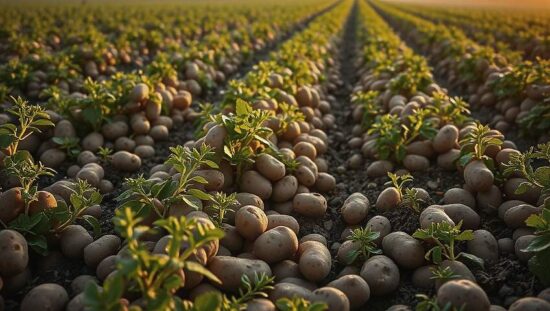a record potato harvest in 2025 is prompting farmers to destroy crops or divert them to biogas plants, while simultaneously urging citizens to stockpile food in anticipation of potential crises.. The unprecedented yield, reaching 13.4 million tonnes – the highest in 25 years – has created a surplus of 2.4 million tonnes, significantly outpacing previous years and expanding cultivation areas by 6.7% nationwide.
This glut has ignited criticism from within the conservative Christian Social Union (CSU), with Stephan Mayer, a prominent MP and former parliamentary state secretary responsible for Germany’s supply security, publicly condemning the waste. “It is unacceptable that we are destroying vital food staples like potatoes or burning them to fuel biogas plants, while simultaneously imploring the public to build emergency food reserves in response to crises and war” he stated.
Mayer proposes a drastic intervention: the establishment of a “national potato reserve”. He argues that the state should actively purchase this agricultural surplus to create a strategic buffer for emergencies, transitioning potatoes from industrial applications back to a purpose of human consumption. “Pickled or canned potatoes are vastly preferable to those being destroyed” he emphasized. Furthermore, he advocates for government subsidies to industrial producers, framing them as a “real investment in national supply security and a justified measure.
The disconnect underscores a widening political dilemma. While the government promotes self-sufficiency and preparedness for potential disruptions like warfare or natural disasters, its policies appear to fail to prevent significant food waste within the agricultural sector. Mayer’s proposal highlights a need for stronger state intervention to reconcile these conflicting priorities, potentially alleviating financial hardship for potato farmers while bolstering national resilience-though critics may question the economic feasibility and potential distortion of market forces. The debate reveals deeper vulnerabilities and complexities surrounding Germany’s food security infrastructure, forcing a critical examination of current agricultural practices and government oversight.





